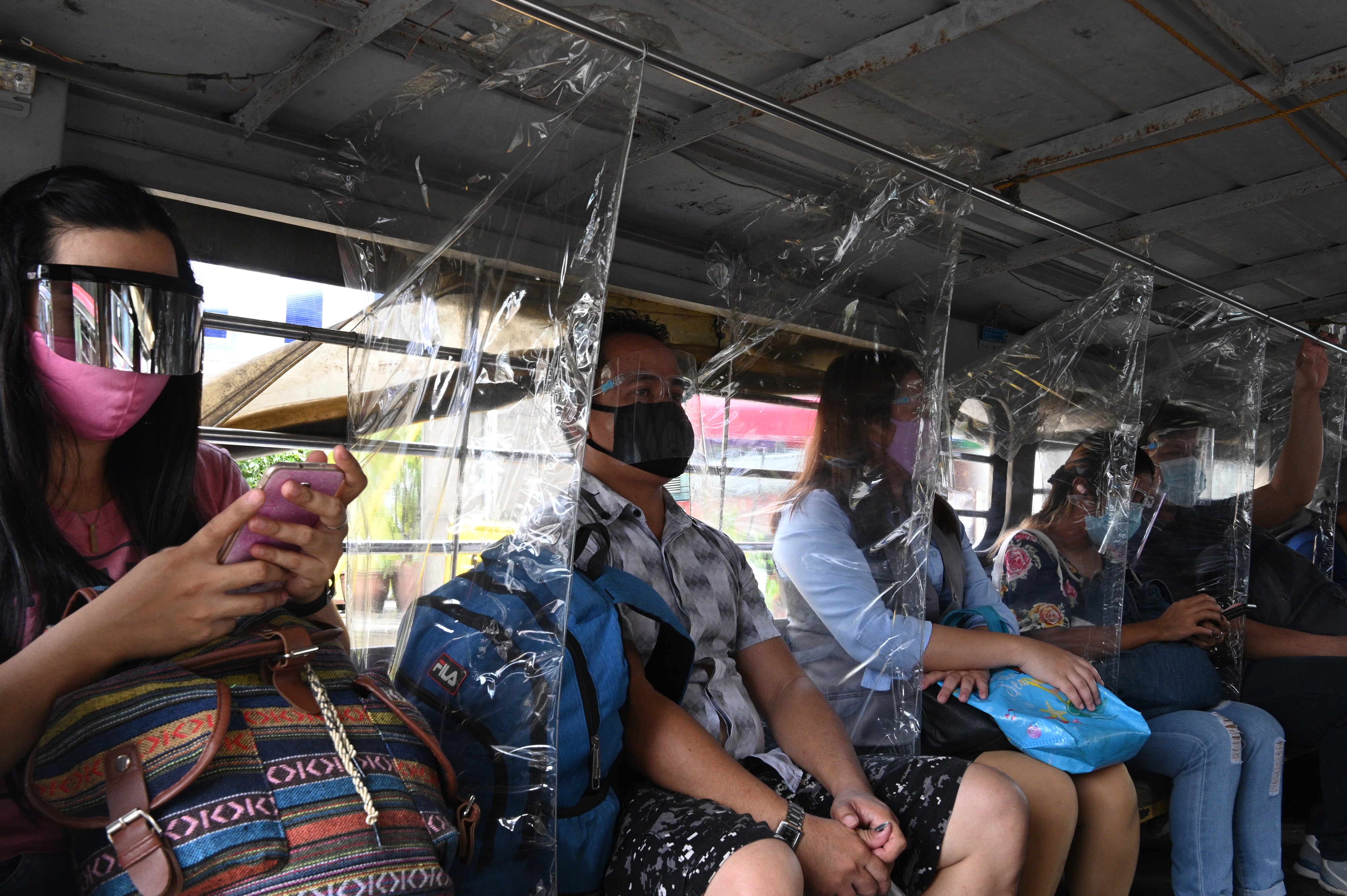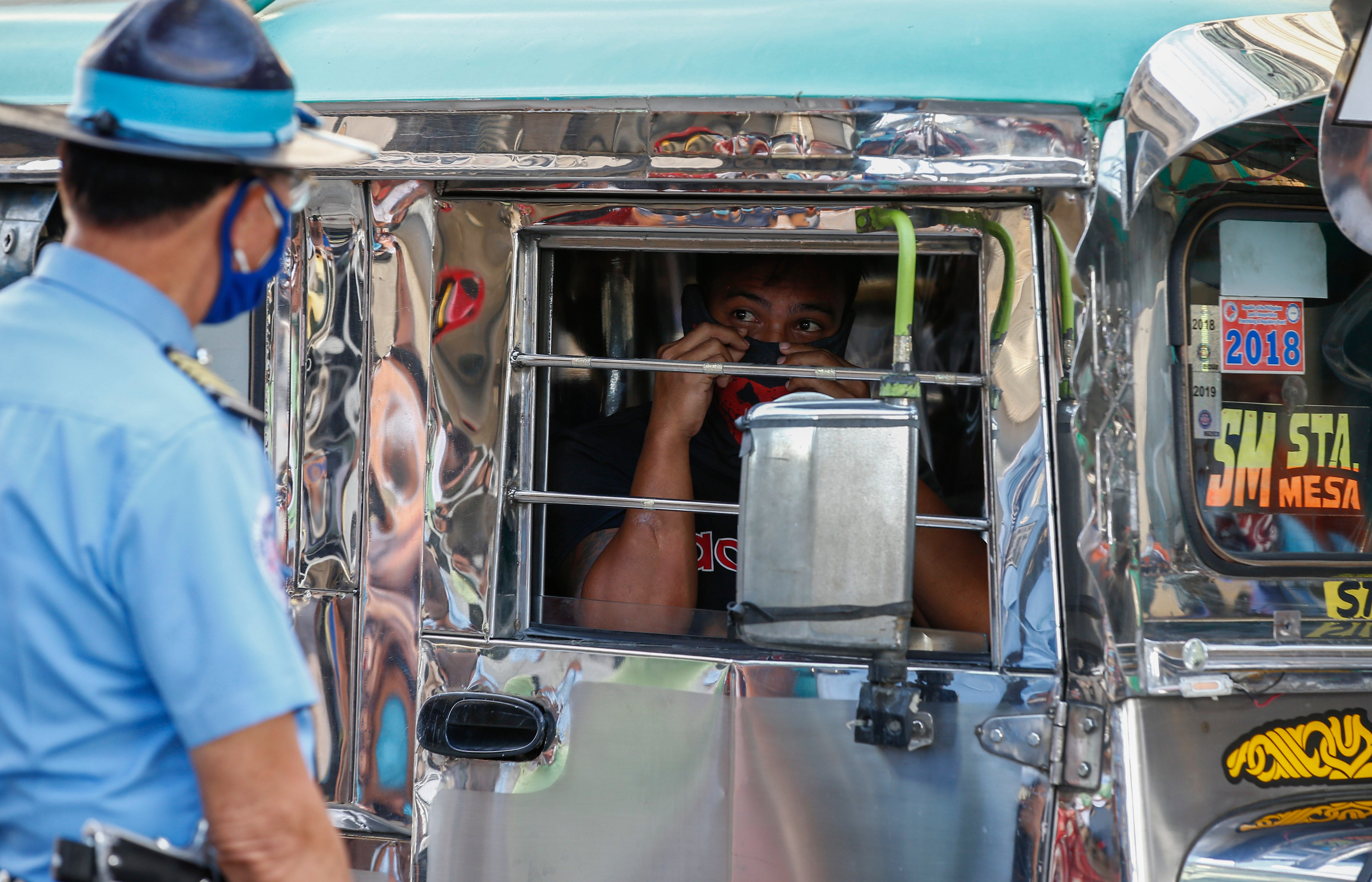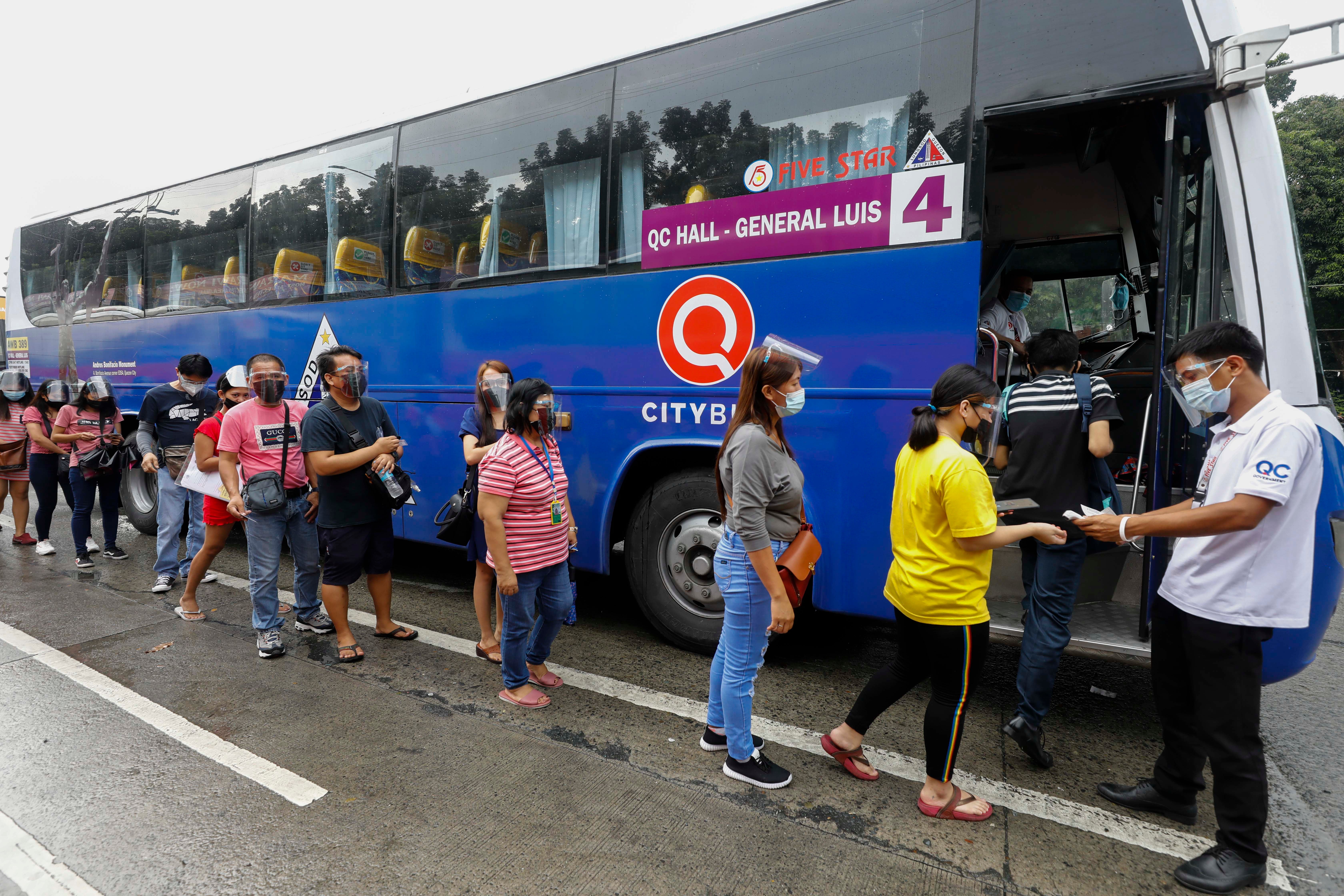‘No vax, no ride’: Philippines bans unjabbed from public transport in blow to the poor
The country’s latest strict coronavirus measure will make life difficult for many unvaccinated residents in Manila who rely on public transport to go to work, buy food, and access healthcare, reports Manny Mogato

Disguised as commuters, plainclothes police officers in the Philippines have started conducting checks on trains and buses to ensure passengers are fully vaccinated as a controversial “no vax, no ride” public transport policy comes into effect in Manila.
The transport ban on the unjabbed – which covers the country’s notoriously congested capital region of about 13 million people – started on Monday as the government attempts to curb a surge in coronavirus cases.
The Southeast Asian nation saw an all-time high of about 39,000 daily Covid infections on Saturday, the sixth time in the past fortnight that a new record has been set. Some doctors believe the actual number could be up to five times higher due to the country’s extremely limited testing capacity.
The health ministry on Saturday said the latest surge was likely driven by the Omicron variant, and that infections could peak from the end of this month to mid-February.
The rise in cases has piled pressure on public services – from hospitals to schools – and sparked a draconian response from President Rodrigo Duterte, who has implemented some of the world’s longest and strictest lockdowns throughout the pandemic. The country has in total registered about 3.2 million Covid cases and 53,000 deaths.
Just days before the public transport ban was announced, Mr Duterte threatened unvaccinated citizens with arrest if they disobeyed stay-at-home orders, while telling local officials to confine those who had not been immunised to their houses.
Under existing rules, unjabbed people in the Manila region can only leave their homes for essential trips.
The transport ban has been widely criticised by human rights groups and lawmakers as “anti-poor” given that most Filipinos rely on public transport to go to work, shops, and healthcare facilities, while the poorest do not own or lack access to private vehicles.
About 80 per cent of residents in the capital rely on public transport to go about their daily lives – especially the flamboyantly decorated jeeps that are known as jeepneys.
“It’s unfair to us,” handyman Nilo dela Cruz told The Independent. “How do they expect us to go to work? Walk? I will be spending half of the day walking to work if they don’t allow us to take the bus.”

The 64-year-old said he was one of three people in his household who had refused to take the vaccine.
“We read on social media that the vaccines had side effects and are not effective. You get sick anyway but it will go away.”
The Philippine Commission on Human Rights said less severe measures to promote vaccine uptake should have been considered, while Amnesty International said the ban unfairly targeted the poor who cannot work from home and that it would “further erode trust in the government”.
“The way out of this pandemic is not to impose unacceptably disproportionate restrictions and punishment on those who are unvaccinated,” said Butch Olano of Amnesty.
Around half of the country’s 110 million people are fully vaccinated. In the Manila region, the rate is higher at nearly 70 per cent.
Ahead of the transport ban, the interior ministry told community leaders to compile lists of the unvaccinated as local authorities warned that many unregistered migrants, elderly people and children had not been jabbed.
The order could lead to infringements on privacy rights and other human rights violations, according to Leila De Lima, a detained senator and critic of Mr Duterte, who likened the lists to those drawn up during the president’s deadly war on drugs.
Steve Pastor, the deputy transport minister, defended the new policy, which covers all transport to and from the Manila region, including buses, trains, boats and planes.
He said the deployment of police officers as “mystery passengers” on public transport would help to ensure compliance.
“Why do they need to be deployed? So we can ensure that even without uniformed enforcers, drivers will still follow our policy,” Mr Pastor told reporters last week.
People must now show a copy of their ID and proof of their vaccination status before being allowed to buy a ticket or board public transport. There are exemptions for medical reasons and for people who need to buy essential goods or services, Mr Pastor said.

In response to widespread criticism, the country’s department of transport said in a statement last week: “We believe that it is more anti-poor and anti-life if we will not impose interventions that will prevent loss of life due to non-vaccinations.”
Nonetheless, the ban has been opposed by several lawmakers, including Senate president Vicente Sotto III who said it was discriminatory given the fact so many Filipinos were unvaccinated.
Congresswoman France Castro said the policy was “simply absurd, unconstitutional, anti-poor and discriminatory”.
“This punishes citizens for the Duterte administration’s failures to respond to the epidemic and vaccinate them,” Castro said last week.
“The government should focus on providing adequate public transportation for the people, not deny access to half of the population of the country.”
One woman in Manila – a 45-year-old widow and mother-of-five – said she had refused to be vaccinated due to her religious beliefs, and described the ban as “insane”.
“Are we prisoners in our own homes? We can’t do anything if they restrict our movements,” the woman – who did wish to be named – told The Independent.
Yet the woman, who does odd jobs such as cleaning and washing clothes to provide for her family, said she would still find a way to travel.
“They cannot stop us from moving around. There will be ways to get around the ban.”






Join our commenting forum
Join thought-provoking conversations, follow other Independent readers and see their replies
Comments